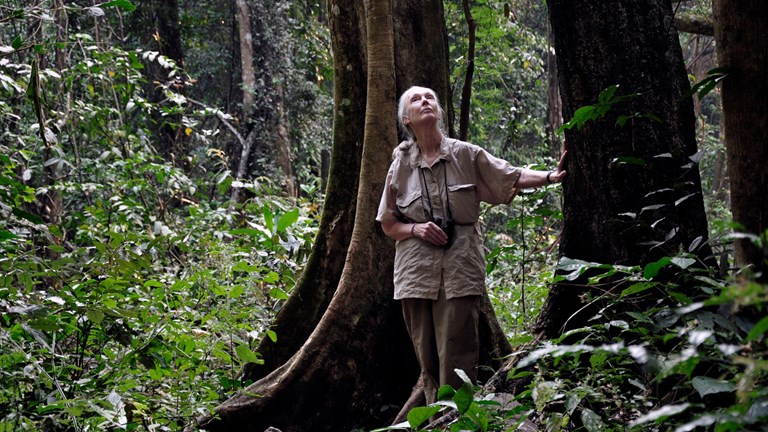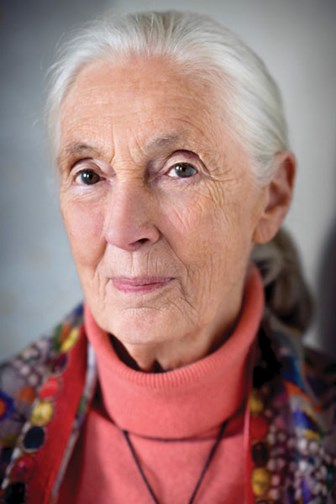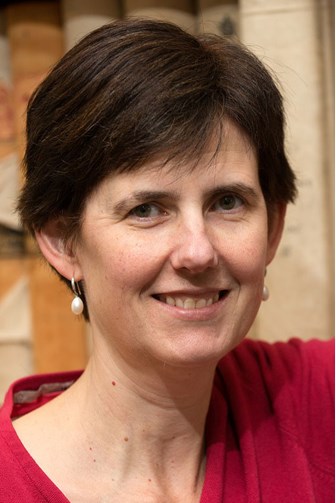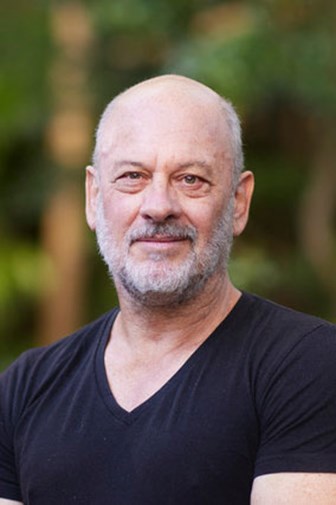
Dr Jane Goodall in Conversation
World-renowned ethologist and conservationist Dr Jane Goodall is hopeful that humankind will solve the problems it has imposed on the Earth.
Celebrating the launch of the Museums Victoria Research Institute, world-renowned ethologist and conservationist Dr Jane Goodall spoke with internationally acclaimed scientist, writer and conservationist Professor Tim Flannery about creating global change by acting locally to tackle one of the most pressing issues of our time – the loss of biodiversity.
Biodiversity is decreasing globally at an alarming rate. With the Australian Federal Government’s release of the State of the Environment report, and the UN Convention on Biodiversity (CBD) preparing to meet in China later this year, scientific experts and world leaders are considering what we can do to tackle this complex challenge and save critically threatened ecosystems across our planet.
How can we transform our relationship with nature at a local level to protect the natural world from the impacts of a growing human population and climate change?
In this exclusive conversation, Dr Jane Goodall joined live via video link to discuss the projects she is leading through the Jane Goodall Institute, collaborating with communities and First Peoples to preserve endangered species and reduce the loss of biodiversity.
Following the keynote presentation by Dr Goodall, Professor Tim Flannery hosted an intimate Q&A with Dr Goodall and Museums Victoria Research Institute’s Senior Curator of Terrestrial Vertebrates, Associate Professor Jane Melville.
Speakers
Dr Jane Goodall, DBE
Founder, The Jane Goodall Institute & UN Messenger of Peace
In July 1960, Dr Jane Goodall began her landmark study of chimpanzee behaviour in what is now Tanzania. Her work at Gombe Stream would become the foundation of future primatological research and redefine the relationship between humans and animals. In 1977, Dr Goodall established the Jane Goodall Institute, which continues the Gombe research and is a global leader in the effort to protect chimpanzees and their habitats. The Institute is widely recognised for innovative, community-centered conservation and development programs in Africa, and for Jane Goodall's Roots & Shoots, the global environmental and humanitarian youth program.
Dr Goodall's honours include the French Legion of Honor, the Medal of Tanzania, the 2021 Templeton Prize and Japan's prestigious Kyoto Prize. In 2002, Dr Goodall was appointed to serve as a United Nations Messenger of Peace and in 2003 she was named a Dame of the British Empire.
Associate Professor Jane Melville
Senior Curator, Terrestrial Vertebrates, Museums Victoria Research Institute
Associate Professor Jane Melville is Senior Curator, Terrestrial Vertebrates at Museums Victoria. She received her PhD in Zoology at the University of Tasmania in December 1998 on the evolution of ecology, morphology and behaviour in Tasmanian snow skinks. In 2002 she joined Museums Victoria as Curator of Herpetology and in 2008 became the Senior Curator of Terrestrial Vertebrates. She currently holds a joint position at the School of Biological Sciences, Monash University. Her contributions to herpetology and the museums sector have been recognised with appointment as a Member (AM) of the Order of Australia in 2021.
Dr Melville’s research combines field-based studies on reptiles and amphibians across conservation, genetics, ecology, taxonomy and evolution. Current projects include investigating the impacts of habitat disturbance, particularly the recent Victorian bushfires, on frog populations in the Kinglake region and the evolution of eastern Australian reptiles past, present and future using fossil and current species. She is also running genetics projects aimed at the conservation of endangered reptiles and frogs, such as grassland earless dragons and growling grass frogs. She is also an expert on dragon lizards and has described and revised more than thirty species.
Moderator
Professor Tim Flannery
Scientist, writer, explorer and conservationist
Tim Flannery is the 2007 Australian of the Year. In 2013 he founded, and is chief councilor, of the Australian Climate Council, Australia’s largest and most successful crowdfunded organisation. He is currently Distinguished Visiting Fellow in Climate Change at the Australian Museum, Sydney.
Flannery has taught at Harvard University, and has advised governments both in Australia and Canada. In 2007 he established and co-chaired the Copenhagen Climate Council, and in 2011 was appointed Australia’s first Climate Commissioner. He serves on the board of the Prince Albert II Foundation, has been a board member of WWF International and the Australian Wildlife Conservancy, an advisor to the National Geographic Society, and board member of the Kelp Blue Foundation.
He has published over 140 peer-reviewed scientific papers and has named 25 living and 50 fossil mammal species, many of which are from PNG. His 32 books include The Future Eaters and The Weather Makers, which has been translated into over 20 languages. He has made numerous documentaries and regularly writes for the New York Review of Books.
He serves on the Queensland Land Restoration Fund, a $100 million fund which focusses on carbon sequestration and biodiversity protection.


